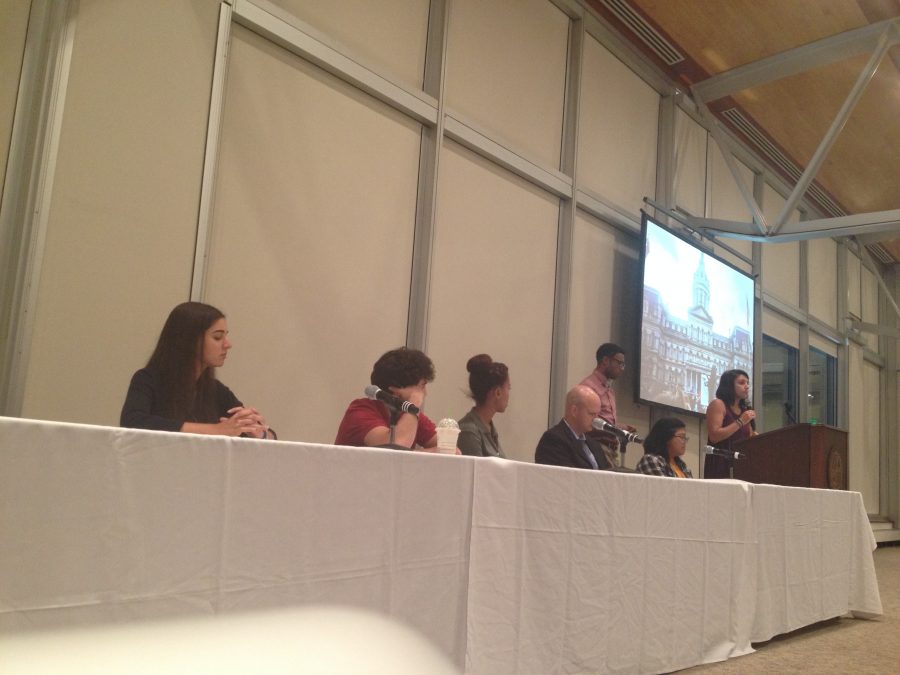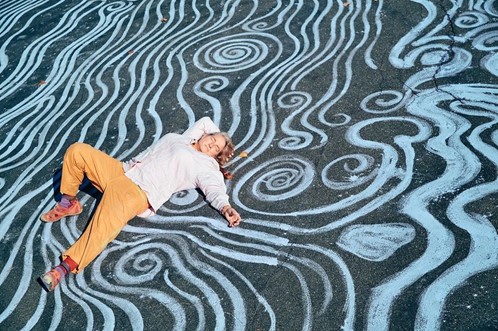On Thursday, Sept. 12, Loyola hosted a discussion entitled “Baltimore Uprising: Perceptions vs. Realities,” during which the hosts Stephanie Maniglia ’16 and Shawn Turner ’16 turned to a panel of students and faculty for their stories about the uprising in Baltimore lastApril. The panel included representatives from the York Road Partnership, a Loyola program that pushes students to be more involved in the York Road community, the Center for Community Service and Justice (CCSJ), and affiliate professor of history, Matthew Hill.
The discussion began with a recap of the timeline from the day that Freddie Gray was arrested, April 12, to Sept. 10, when we found out that the officers charged with Gray’s death will be tried in Baltimore. After getting the audience and the panelists in the mindset of when the uprising first began in April, Turner and Maniglia began the interview with the panelists.
Maniglia introduced the question: “What were your initial thoughts about the uprising, and how did it challenge your perceptions and values?”
Zebridera Hunter ‘16, the Director of Diversity in CCSJ, stated that she was abroad when the uprising began. Despite this, she kept up with the news in Baltimore, and she said it really “hit home.” She didn’t know what it was like to be at Loyola or in Baltimore at the time, but she was very proud of how she saw Loyola getting involved with things like peaceful protests and helping to clean up the city.
By contrast, Diana Dautzenberg ‘16, the representative from the York Road Partnership, was living on campus last year and was completely “overwhelmed.” She was shocked by how the media portrayed the youth of Baltimore. When she heard about the looting at the CVS on York Road, “it hit me hard, because that’s our community.” Dautzenberg helped clean up York Road the next day, participated in peaceful protests, and stood along York Road with signs saying, “Honk for Peace,” which, she says, produced very positive results.
The next question asked what was the next step for Baltimore citizens, especially Loyola students, to heal our city.
Ruben Ferreira de Carvalho ‘16, who ran the peaceful protests on campus last year, responded elegantly with a call to action stating, “Engage with the youth of Baltimore.” He also reminded students to not “forget the names” of those who had experienced police brutality, “because when you forget the names, you forget the stories.” Ferreira de Carvalho also invited each of the students to “check your privilege,” which was an event on campus last year where students wrote down all of the privileges they possess, such as sex, race, and class.
Matthew Hill, an affiliate professor of history at the University, supported Ferreira de Carvalho’s call to action by saying, “Loyola needs to be more involved [with the city], especially along the York Road corridor.”
Francesca Valesco ‘18, the facilitator for “Stories in Solidarity,” reminded students to share their stories, just as the photography project and panel did. “‘Stories in Solidarity’ really reaches people, which is amazing, because when we reach out our stories…everyone who is not here, who doesn’t experience what we do…everyone who doesn’t know….it touches their hearts.”
At the end of the discussion, Turner encouraged students to continue talking about the Baltimore uprising, their personal experiences and their perceptions privileges. “This is just the start…it’s not an easy conversation, but a necessary one,” he said.
There will be more events centered around these topics on campus soon, starting with “Dancing White,” which takes place on Sunday Sept. 13 at 6 p.m. in McManus Theater. A student meeting called “#OneBaltimore” will be held on Thursday Sept. 17 at 7 p.m. in Cohn Hall 133.
















































































































